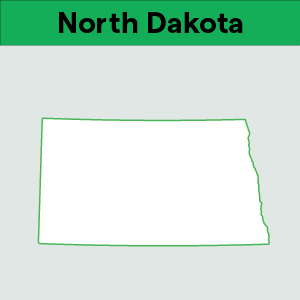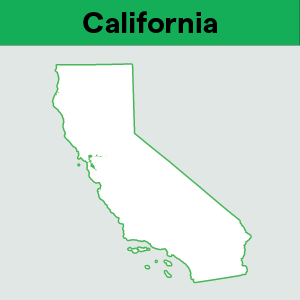New York’s marketplace facilitator sales tax law, explained
by February 18, 2025
The state of New York now requires marketplaces to collect sales tax on behalf of sellers on online marketplaces like Walmart or Amazon.
This means that if you sell on a platform like Walmart, then Walmart will collect sales tax from your New York buyers on your behalf, and remit it to the state.
But as usual, there are always a few wrinkles here when it comes to e-commerce sales tax.
This post will explain what online sellers need to know about the New York marketplace facilitator law, and answer your frequently asked questions.
Overview of the New York marketplace facilitator law
New York’s marketplace facilitator law states that marketplace facilitators in New York collect New York sales tax on behalf of third-party sellers. The marketplace facilitator will collect sales tax on all sales delivered into NY regardless of the nexus status of the seller.
Quick facts about the New York marketplace facilitator law
-
- Effective date: June 1, 2019
- Threshold: New York’s marketplace facilitator law states that marketplace facilitators in New York collect New York sales tax on behalf of third-party sellers. The marketplace facilitator will collect sales tax on all sales delivered into NY regardless of the nexus status of the seller.
- State law information: Read the full text of the New York Marketplace Facilitator Law
- Marketplaces that have adopted this law:
Frequently asked questions about marketplace facilitator laws
What exactly is a marketplace facilitator in New York?
New York law defines marketplace facilitators as a “(i) listing or otherwise making available listing or otherwise making available for sale the tangible personal property of the marketplace seller through a marketplace owned or operated by the marketplace facilitator; and (ii) processing sales or payments for marketplace sellers.”
Online sales platforms like Amazon and eBay are considered marketplace facilitators under New York law.
A software like BigCommerce or Magento that allows online sellers to build and manage their own stores would not be considered a marketplace facilitator.
Does this mean I can stop collecting New York sales tax?
It depends. Every business’s sales tax situation is unique to that business.
Let’s look at a couple of common scenarios for businesses who have sales tax nexus in New York.
Example #1: You only make sales on online marketplaces.
In this example, you only sell on Amazon and eBay. Because Amazon and eBay are both now collecting sales tax from buyers on your behalf, you are not required to collect sales tax from your buyers. (However, you may still be required to file periodic sales tax returns. See “Does this mean I can cancel my New York sales tax permit?” below.)
Example #2: You sell on online marketplaces and your own online store and/or brick and mortar store.
In this case, you’d still be required to collect sales tax from buyers who purchase from you through your own online store (for example, via your WooCommerce or Shopify store). And you would still be required to collect sales tax from your brick and mortar customers.
Marketplace facilitator laws only cover marketplaces. The state still requires that merchants collect sales tax from buyers via sales channels where the marketplace facilitator laws do not apply.
Does this mean I can cancel my New York sales tax permit?
It depends.
New York’s marketplace facilitator law does not affect the sales tax registration requirements for existing sellers. So if you live or otherwise have sales tax nexus in New York, then you are still required to hold a New York sales tax permit. This also means you are still required to file sales tax returns on due dates set for you by the state.
However, if you are registered to collect sales tax in New York and only make marketplace sales in New York, you may be able to cancel your sales tax permit.
But first, a word of caution. We recommend checking directly with the state or a sales tax expert before cancelling your sales tax registration. This is because your business is now on the state of New York’s books and potentially on their radar should they decide that you still have sales tax obligations in the state of New York.
Final note: It’s important to assess your business before making a decision about cancelling sales tax permits. Are you in a growth stage? Do you plan to expand and think you may have New York sales tax collection requirements in the future? Then you may want to hang on to your New York sales tax permit rather than cancelling it and going through the administrative hassle of registering again in the future. This business decision is up to you.
Do I still need to file a New York sales tax return?
If you are registered to collect sales tax in New York (i.e. you have an active New York sales tax permit) then the state still requires that you file sales tax returns.
If you only make sales via marketplaces, and all of your marketplaces collect sales tax from buyers on your behalf, then you may only be required to file a “zero return.” (This is a return showing that you do not have any sales tax to remit to the state.)
If you no longer have any sales tax to remit to the state of New York, we recommend checking directly with the state to determine if you can cancel your sales tax registration.
Be cautious here. If you are registered for a sales tax permit and do not file, the state can assess penalties even though you don’t have any sales tax to remit! We have, unfortunately, talked to too many sellers who have found this out the hard way when a tax penalty bill arrives.
What do I do with any New York sales tax I have already collected?
If you have already collected New York sales tax from buyers, it is vital that you remit that amount to the state. The only way to get in serious criminal trouble in sales tax is to collect sales tax from buyers on the state’s behalf but keep it in your own pocket.
Example:
Let’s say you sell on Amazon and New York requires you to file and remit sales tax quarterly. Though Amazon began collecting sales tax on your behalf on January 1, if you have any sales tax in your bank account that you collected from Q4 2019, you will still need to remit that to New York Department of Taxation or face a penalty.
Does TaxJar handle this for me?
Yes.
TaxJar AutoFile handles New York sales tax automatically
TaxJar AutoFile automatically compiles your sales tax data the way the state of New York wants it filed. For example, many states, New York included, want sellers to break down their sales tax collected interstate (sales originating in New York sent to another state) and intrastate (sales made from New York to New York.)
If a marketplace has collected sales tax on your behalf, TaxJar reports that directly to the state so that the state is aware you have met your sales tax obligations.
If you currently AutoFile your New York sales tax returns, you don’t need to do a thing. It’s handled!
TaxJar Reports give you all the info you need to file manually
If you prefer to file manually, your TaxJar Reports also reflect what the New York Department of Taxation wants to see on your tax return.
Also don’t worry that you will double pay. TaxJar accounts for sales tax collected on your behalf, and only shows you the amount you owe to the state out of your pocket.
Further reading on New York sales tax and marketplace facilitator laws:
- TaxJar’s Marketplace Facilitator FAQ
- State by State: Marketplace Facilitator Laws Explained
- New York Sales Tax Guide for Businesses








